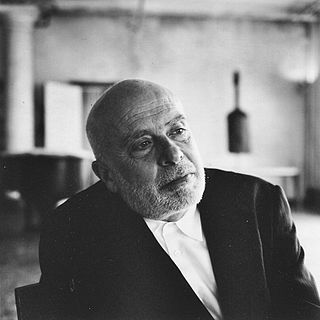A Quote by Umberto Eco
I think that at a certain age, say fifteen or sixteen, poetry is like masturbation. But later in life good poets burn their early poetry, and bad poets publish it. Thankfully I gave up rather quickly.
Related Quotes
I do believe that one's writing life needs to be kept separate from Po-Biz. Personally, I deal with this by not attending too many poetry readings, primarily reading dead poets or poems in translation, reading Poets & Writers only once for grant/contest information before I quickly dispose of it, and not reading Poetry Daily. Ever.
There's no difference between lyrics and poetry. Words are words. The only difference is the people who are in academic positions and call themselves poets and have an academic stance. They've got something to lose if they say it's all poetry; if there's not music to it, and you have to wear a certain kind of checkered shirt or something like that. It's all the same. Lyrics are lyrics, poetry is poetry, lyrics are poetry, and poetry is lyrics. They are interchangeable to me.
I don't know that I had a sense that there was such a thing as "the poetry world" in the 1960s and early 70s. Maybe poets did, but for me as an onlooker and reader of poetry, poetry felt like it was part of a larger literary world. I mean, even the phrase "the poetry world" reflects a sort of balkanization of American literary and artistic life that has to some extent happened since then.
One can say that the disaffection is still a lingering naiveté about, not the place of poetry in the world, but - how to say this - the moral and intellectual presence of poets in the world. And while this may seem an old conversation to many poets who roll their eyes and say, "Here we go again about the function of poetry," I think that conversation, about poetry as an engaged art in a world that is full of regression or still lacking in progress, is still really not well-developed. It's almost an avoided conversation.
I have just been to a city in the West, a city full of poets, a city they have made safe for poets. The whole city is so lovely that you do not have to write it up to make it poetry; it is ready-made for you. But, I don't know - the poetry written in that city might not seem like poetry if read outside of the city. It would be like the jokes made when you were drunk; you have to get drunk again to appreciate them.
I tend to like the way poets form communities. Writing can be lonely after all. Modern life can be lonely. Poets do seem to be more social than fiction writers. This could be because of poetry's roots in the oral tradition - poetry is read aloud and even performed. I'm just speculating, of course. At any rate, because poets form these groups, they learn from one another. That is one of the best things about being a poet.
There are some good things and some fantastic ones in Auden's early attitude; if the reader calls it a muddle I shall acquiesce, with the remark that the later position might be considered a more rarefied muddle. But poets rather specialize in muddles and I have no doubt which of the muddles was better for Auden's poetry: one was fertile and usable, the other decidedly is not. Auden sometimes seems to be saying with Henry Clay, "I had rather be right than poetry"; but I am not sure, then, that he is either.
My biggest poetic influences are probably 20th-century British and Irish poets. So I suppose I'm always listening for the music I associate with that poetry, the telling images, the brevity. I want to hear it in my own work as well as in the poetry I read. However, I think I'm generally more forgiving of other poets than myself.
There's a sameness about American poetry that I don't
think represents the whole people. It represents a poetry
of the moment, a poetry of evasion, and I have problems
with this. I believe poetry has always been political, long
before poets had to deal with the page and white
space . . . it's natural.
If the United States haven't grown poets, on any scale of grandeur, it is certain that they import, print, and read more poetry than any equal number of people elsewhere -- probably more than the rest of the world combined. Poetry (like a grand personality) is a growth of many generations -- many rare combinations. To have great poets, there must be great audiences too.
Poets seem to write more easily about love than prose writers. For a start, they own that flexible ‘I’…. Then again, poets seem able to turn bad love – selfish, shitty love – into good love poetry. Prose writers lack this power of admirable, dishonest transformation. We can only turn bad love into prose about bad love. So we are envious (and slightly distrustful) when poets talk to us of love.





































